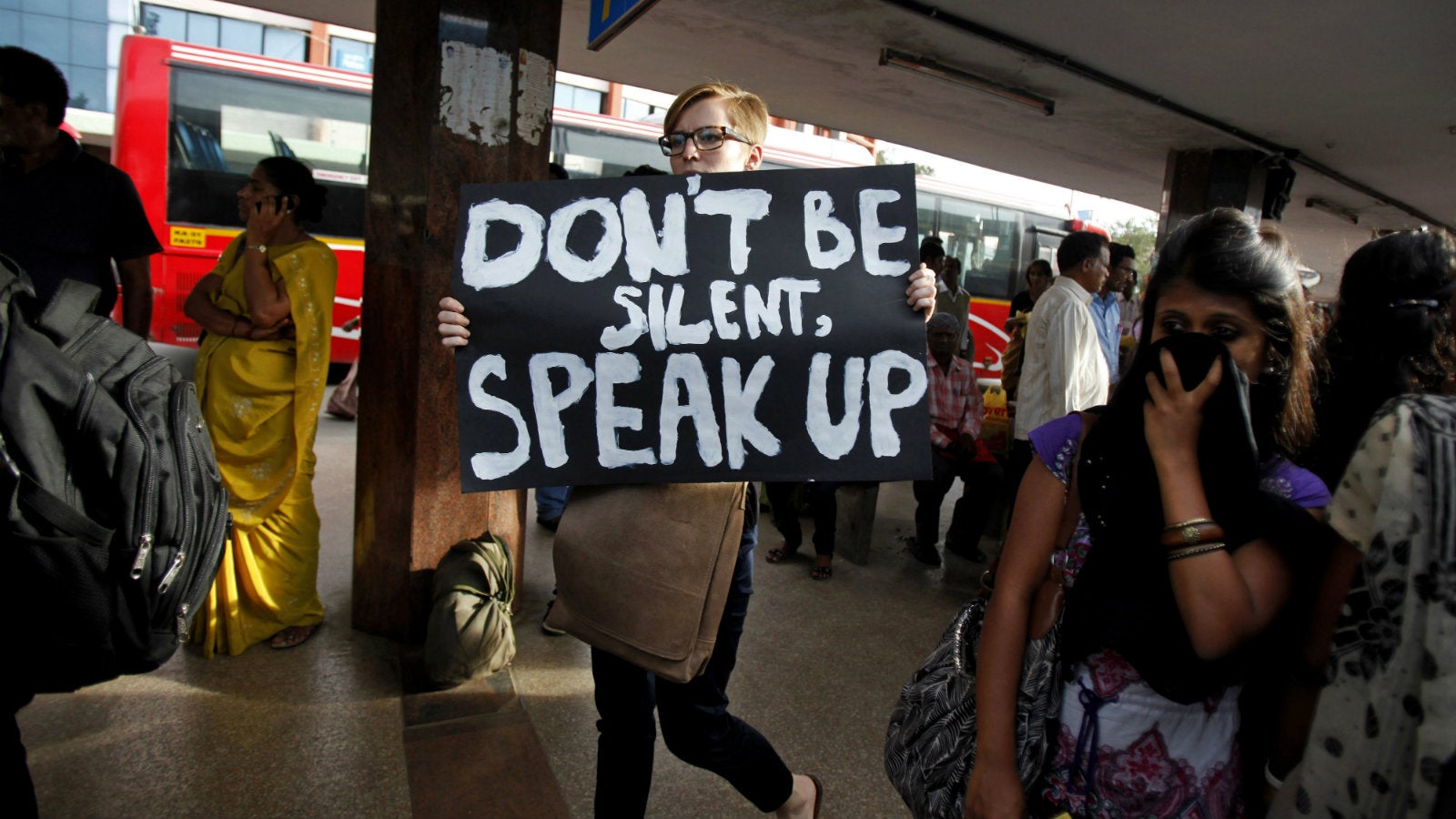Why it’s good Indian companies led by woman CEOs are reporting more sexual harassment cases
There’s been a hike in the number of sexual harassment cases filed at India’s listed companies, including those headed by women, in the last financial year—and that could be a good thing.


There’s been a hike in the number of sexual harassment cases filed at India’s listed companies, including those headed by women, in the last financial year—and that could be a good thing.
In the fiscal 2016-17, up to 621 complaints were registered at 90 out of the top 100 companies listed on the BSE, as per data compiled from their annual reports by Complykaro, a regulatory compliance firm. The remaining 10 are yet to release their reports. A year earlier, in 2015-16, the number of sexual harassment grievances recorded was 549 .
“It’s not that these cases were not happening earlier. It just means that, increasingly, more women are coming forward and reporting such issues,” explained Complykaro founder Vishal Kedia. His firm assists companies in complying with the sexual harassment law.
The Sexual Harassment of Women at Workplace Act, 2013, makes it mandatory for firms to disclose in their annual reports the number of such cases filed and addressed. They must also conduct awareness programmes and constitute an internal complaints committee to address the concerns.
According to Complykaro’s data, the list of top 10 companies with the highest number of such complaints includes three banks headed by women.
Chanda Kochhar-led ICICI Bank, India’s biggest private-sector lender, reported 95 complaints in 2016-17, the second-highest among the BSE top-100 companies. Axis Bank and State Bank of India (SBI) registered 32 and 21 sexual harassment grievances, respectively. While Axis Bank, headed by CEO Shikha Sharma, is the country’s third-biggest private-sector lender, the government-run SBI, led by chairperson Arundhati Bhattacharya, is the largest lender in the country.
“We would definitely want the numbers to come down but not at the cost of our colleagues under-reporting such incidents,” T K Srirang, ICICI Bank’s human resource head, said in an emailed response to Quartz’s queries.
Meanwhile, industry observers said that having a woman boss at the top restores confidence among woman employees. “It doesn’t mean that you won’t be heard fairly if you have men in leadership roles, but just that it gives a sense of comfort,” said Rituparna Chakraborty, executive vice-president and co-founder, TeamLease, a human resources services firm.
About 59% of woman employees do prefer female bosses, according to the Randstad workmonitor survey, released in June this year.
However, a staggering 70% of women still refrain from reporting unwanted sexual advances from their superiors, says a survey of 6,047 respondents conducted by Indian Bar Association in 2017.
Meanwhile, out of the top-10 companies with highest number of such complaints, eight are either from the financial or the IT sectors. Again, this isn’t reflective of an extraordinarily unsafe work environment, but just that more women are willing to speak up, human resource experts say.
“The financial services industry employs a higher number of women. (The) IT sector may not be attractive in terms of gender diversity but certainly is transparent, and the women employed are more aware of their rights as compared to some other sectors,” explained Chakraborty.
Experts also say that it is extremely important to make women feel safe at work, lest India’s dismal female labour participation worsens. A World Bank report on female participation in the workforce, released earlier this year, pegged India’s position at 120 out of 131 countries.